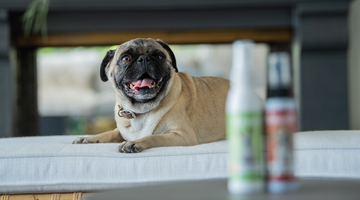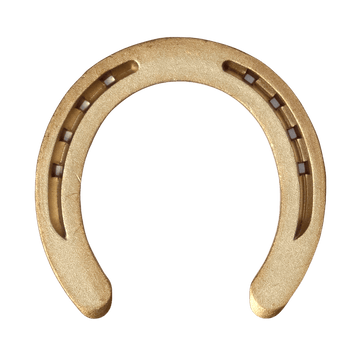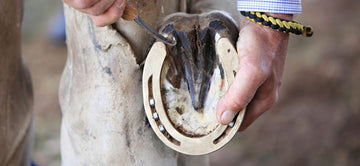Having a pet is a wonderful experience that can bring joy and companionship to our lives. One of the most important aspects of pet ownership is ensuring that our beloved animals have a long and healthy lifespan. Not only is this important for the well-being of our pets, but it also allows us to enjoy their company for a longer period of time. Taking proactive steps to improve the lifespan of your pet can have numerous benefits.
By addressing potential health issues early on and implementing preventative care measures, you can help your pet live a longer, happier life. Additionally, investing in your pet's health can also help reduce the risk of expensive veterinary bills down the line. Overall, taking proactive steps to improve your pet's lifespan is an important aspect of responsible pet ownership and can have numerous benefits for both you and your beloved animal. In this article, we will explore the ways you can help improve the lifespan of your horse, cat, or dog, starting right now!
How can I improve my horse's lifespan?
Improving your horse's lifespan can be achieved by focusing on several key areas. One of the most important is proper nutrition, as a balanced diet can help your horse maintain a healthy weight and support muscle strength.
Regular exercise and turnout can also help maintain muscle strength and overall health. Horse life can also be improved by avoiding activities that are too strenuous for your horse's age and condition.
Dental care is another crucial aspect of horse health, as problems with teeth can lead to issues with eating and digestion. Dental disease in horses is also linked to a greater risk of infections such as ear infections and skin infections. As horses age, their skin can become more prone to different ailments, so inspecting your horse regularly for signs of scars or abrasions is also important.
Regular visits to the veterinarian for check-ups and preventative care can help identify and address any potential health problems before they become more serious. Descendants of wild horses are particularly vulnerable to disease, so regular monitoring is important for their survival.
Keeping your horse's environment clean and safe is also important for your horse's overall well-being. Barns and pastures should be free of debris and hazards while providing plenty of space for your horse to move freely.
Use social media to your advantage and follow equine experts who can give you valuable advice on how to care for your horse in the best
Finally, implementing a regular grooming routine can help maintain hoof health and overall physical wellness. As horses age, their needs may change, so it is important to adjust your care regimen accordingly. By paying attention to the areas we noted, though, you can support your horse's golden years and improve its quality of life.

How can I improve my cat's lifespan?
Improving your cat's lifespan involves taking a proactive approach to their overall health and well-being. Fueling your kitty's body with the right nutrients is essential to helping them to achieve a healthy weight, which can improve life expectancy and have a positive impact on the number of years they live. A balanced diet provides key components for proper nutrition, and high-quality dry food is often a good choice because it will support a cat's teeth and dental health and provide the necessary nutrients.
In addition to a healthy diet, regular exercise and playtime are important for maintaining muscle strength and overall physical condition. Cars who live indoors should have plenty of opportunities to play and stay active. This can include playing with different toys, scratching posts, and even interactive laser pointers.
Regular visits to the veterinarian for check-ups and preventative care for your cat can also help identify and address any potential health issues early on. Heart disease is a common ailment in cats, so it is important to be mindful of any signs that your cat may have a heart condition. You can improve your pets life span significantly by simply visiting their vet on a regular schedule.
Keeping the living environment clean and safe is also crucial for your cat's well-being. Areas of the home that your cat frequents should be inspected regularly for hazards, and it's a good idea to make sure that there is plenty of space for your cat to play, run, and jump.
According to Banfield Pet Hospitals, you can usually expect a lifespan of about 15-20 years for domesticated cats, but with proper care, your domestic cat may live even longer!
How can I improve my dog's lifespan?
Ensuring your dog has long-term health and happiness requires attention and care. Developing a proper diet tailored to your canine companion’s individual needs is essential, as is providing balanced meals. Some dog breeds do better with specific dog food, especially as they age. Checking with your vet can help you make the best dietary decisions for your pup. If you notice that your dog has a loss of appetite or weight, it is important to contact your vet as this can be a sign of underlying health issues.
In addition to proper nutrition, regular exercise and playtime are important for maintaining a healthy weight and preventing the onset of diseases or other health conditions. Quality sleep is also important for your dog’s physical and mental health, so providing a comfortable and supportive bed and a calming environment can help your pooch get the rest they need.
Regular visits to the veterinarian for check-ups and preventative care will help identify early signs of gum disease, and staying current on vaccinations and preventative care will protect against illnesses. Vets can also provide advice on heart disease, which is not uncommon in dogs.
Additionally, consistent training and socialization through activities such as walking, playing, or even some time at a doggy daycare will promote obedience and reduce anxiety.
Furthermore, making sure your dog's living conditions are clean will help them avoid parasites typical to their specific breed type and protect them from other environmental hazards. Pet insurance can be a good investment as well, and all of these elements - combined with common sense - should guarantee you many happy years together!
In conclusion
Taking a proactive approach to your pet’s overall health is key to helping them live a long and happy life. With proper diet, exercise, and preventative care, your horse, cat or dog will enjoy the best quality of life possible. With these considerations in mind, you can ensure that your pet’s golden years are spent in good health and spirits. And if your pet is healthy, all areas of your life will benefit too!










